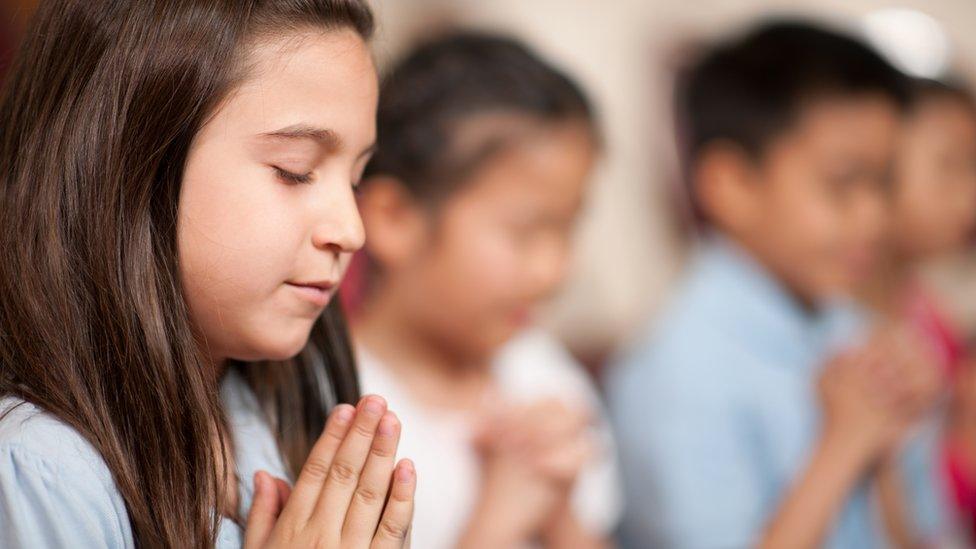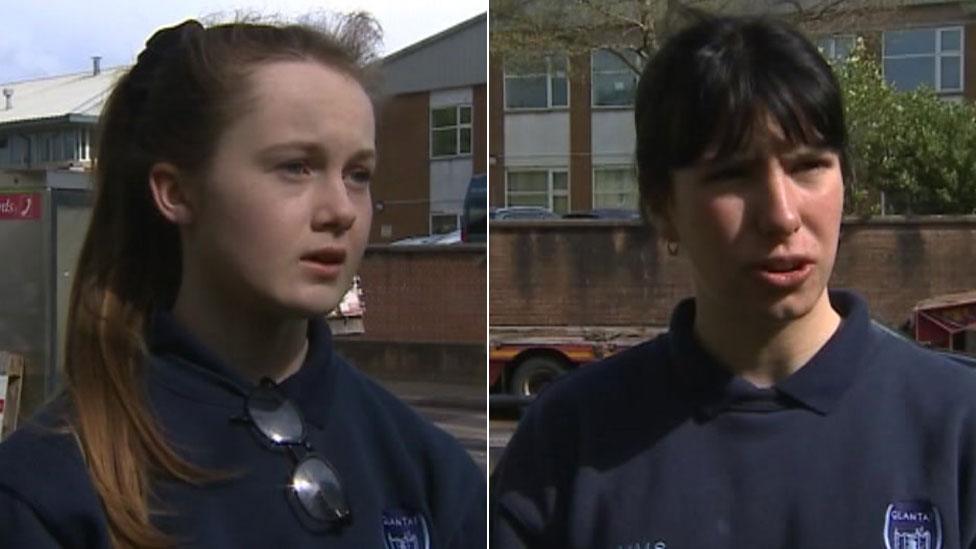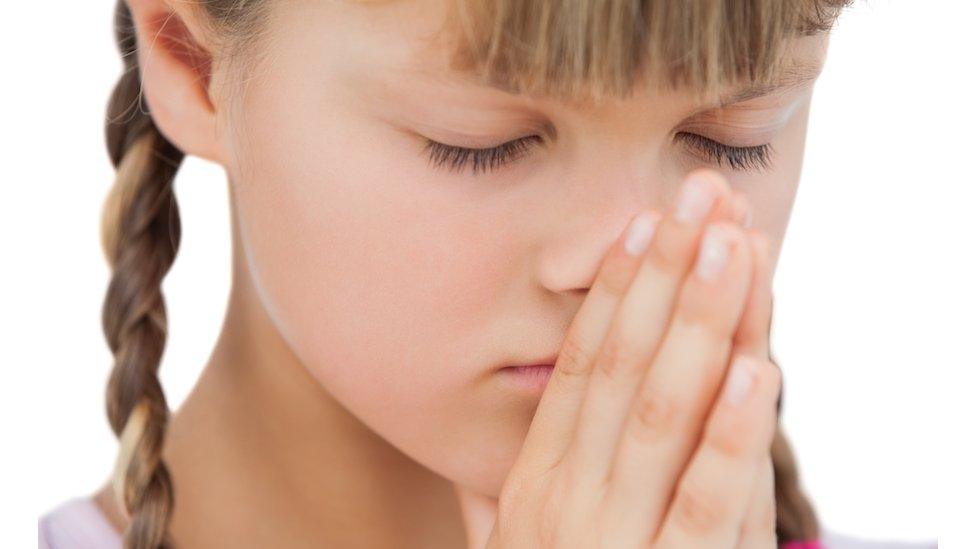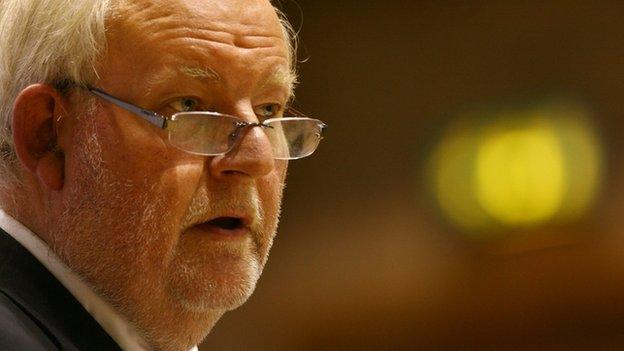Poor school worship 'puts off young', Church in Wales says
- Published

It is currently a legal requirement for schools in Wales to hold collective acts of worship
Young people are being put off collective worship in schools because it is often "not done particularly well", the Church in Wales has said.
The Church was responding to a Welsh Assembly committee decision to ask Education Secretary Kirsty Williams for a review of the practice in schools.
It is a legal requirement for schools to hold collective acts of worship.
But the Petitions Committee wrote to Ms Williams asking her to consider if it was compatible with human rights law.
The committee took the decision on Tuesday after receiving a petition from Cardiff schoolgirls Rhiannon Shipton and Lily McAllister-Sutton, who had collected 1,333 signatures.
The petition called on the assembly to urge the Welsh Government to pass a law that removes the obligation on schools to hold acts of religious worship.
The girls, who say they do not believe in God, said it was time their school - Glantaf - and others in Wales, adopted modern attitudes.
The committee also received another petition, launched in response, to keep the current guidelines for religious assemblies.
This petition, submitted by Iraj Irfan, was signed by 2,231 people.

Rhiannon Shipton and Lily McAllister-Sutton want to see an end to collective worship in schools
A Church in Wales spokeswoman said: "The law that requires a daily act of worship in schools is not a mandate to compel pupils to recite the Lord's Prayer, and be so inspired that they turn up at church the following Sunday.
"Rather, it is an invitation to experience what faith and commitment means, in a broadly Christian way, whilst understanding and appreciating other faith perspectives."
She added: "Often young people are put off collective worship in schools because it is not done particularly well.
"Collective worship should be a richly rewarding spiritual experience that is creative, interactive and informative."
'Range of beliefs'
Ysgol Glantaf's headmaster Alun Davies has said he respects the fact two of his pupils have expressed their opinion and that the school encourages this.
He said while the emphasis was on Christianity, there are times when the school holds assemblies when pupils come together to discuss other themes and moral issues.
But Wales Humanists have described the practice as "archaic".
Coordinator Kathy Riddick said: "Forcing children to worship a god they may or may not believe in is obviously unacceptable and represents an affront to young people's freedom of religion or belief.
"It shouldn't take two school pupils to convince the Welsh Government of this, but nevertheless we hope Kirsty Williams will now give this the attention it deserves and remove this archaic and discriminatory requirement as soon as possible."
The Welsh Government said: "Collective worship should be sensitive to the range of beliefs and non-beliefs held by pupils in the school and should give pupils the opportunity to worship, without encouraging them to do something that is against the teachings of their own religion or beliefs.
"Parents can request for their child to be withdrawn from collective worship and schools must agree to such requests in all circumstances."
- Published13 November 2015

- Published15 June 2015

- Published23 December 2015